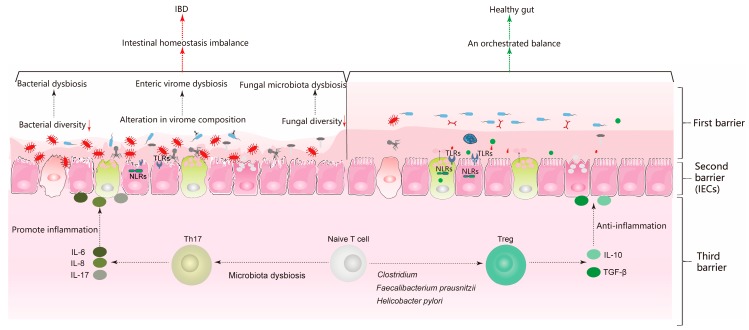Figure 2.
Alteration of the intestinal homeostatic balance promotes the pathogenesis of inflammatory bowel disease (IBD). During homeostasis in healthy intestines, gut microbes induce an immune tolerance phenotype. In contrast, the key features of homeostasis imbalance are microbiota dysbiosis and immunological dysregulation. Microbiota dysbiosis involves the excessive reproduction of potentially pathogenic microorganisms, which can erode the intestinal mucosa and increase intestinal permeability, thus promoting the overactivation of the adaptive and innate immune system and driving chronic inflammation. Moreover, microbiota dysbiosis can induce imbalance of the Treg/Th17 axis, leading to further inflammatory responses in the intestinal tissue. However, some gut microbiota (e.g., Clostridium, Faecalibacterium prausnitzii, and Helicobacter pylori) favors the development of Treg cells to promote the anti-inflammatory effect. In brief, any side or both abnormal in gut microbiota or Treg/Th17 axis may cause intestinal homeostatic imbalance. Ultimately, disorders of the intestinal homeostasis can lead to or aggravate IBD.

